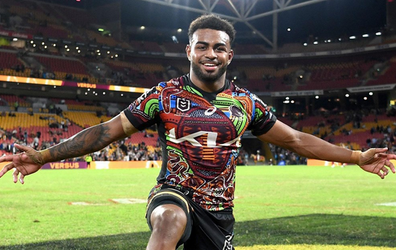Foordy
International Captain
Contributor
- Mar 4, 2008
- 34,743
- 41,409
Rugby League Players Association will press for reduction in drug penalties
PAUL MALONE, The Courier-Mail
May 11, 2017 7:05pm
RUGBY league players will press for a reduction in the penalties for a second strike under the NRL’s illicit drug code, defiantly saying that punitive suspension do not work.
The Rugby League Players Association’s talks with the NRL, part of the collective bargaining agreement negotiations, will also push a need for additional investment by the league in player welfare and support.
This includes the hiring of experts for a new Rehabilitation Panel from the fields of those who counsel on drugs and alcohol abuse, as well as psychologists and law enforcement officers.
The RLPA emailed players on Wednesday with their plans for reforms to player welfare and the illicit drugs policy in negotiations with the NRL.
Ben Barba is one of the few players who recorded their second strike.
The Courier-Mail can reveal that while the RLPA will continue to co-operate with the NRL in testing for illicit drugs under the CBA, the players union believe it should lead to a reduction in agreed ban periods because meaningful efforts have been made to change behaviours.
Under the current NRL illicit drugs policy, a player is not supposed to be identified publicly for a first offence, receiving counselling and at times an unpublicised fine.
The second strike is sanctioned with a 12-week ban or a period up to contract termination. The third breach, contrary to some reports, is subject to penalties at the discretion of the NRL’s chief executive or chief operating officer.
“While it might make us all feel better to demand zero tolerance and harder penalties, there is no evidence that this will be more effective,’’ RLPA CEO Ian Prendergast wrote to members.
“We all want to reduce these incidents (of drug policy breaches) but it’s not as simple as increased suspensions or life bans.
“We know that our wellbeing and education investment in players as people is working.’’
The RLPA say its research shows players are motivated to avoid drug taking more by the risk of detection than by the scope of penalties associated with detection.
New philosophies in counselling and other forms of support for players after recording a first strike on illicit drugs is important, the RLPA believes.
Under first strike provisions, club CEOs can make decisions on a player’s employment on the knowledge of drug breaches which are kept confidential from the public.
Under the current CBA, NRL players fund the wellbeing programs for them and under-20s players.
The RLPA is also pushing for an increased salary cap of up to $10 million next year as well as pension provisions from the game’s revenues, but argue it would be good investment in the health of the sport as well as NRL players.
http://www.couriermail.com.au/sport...s/news-story/720c08adc7aff94deb036c8615a241b6






